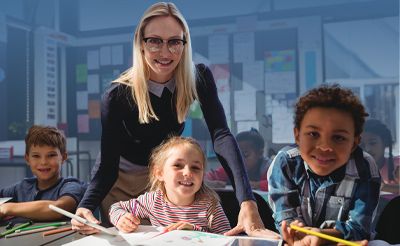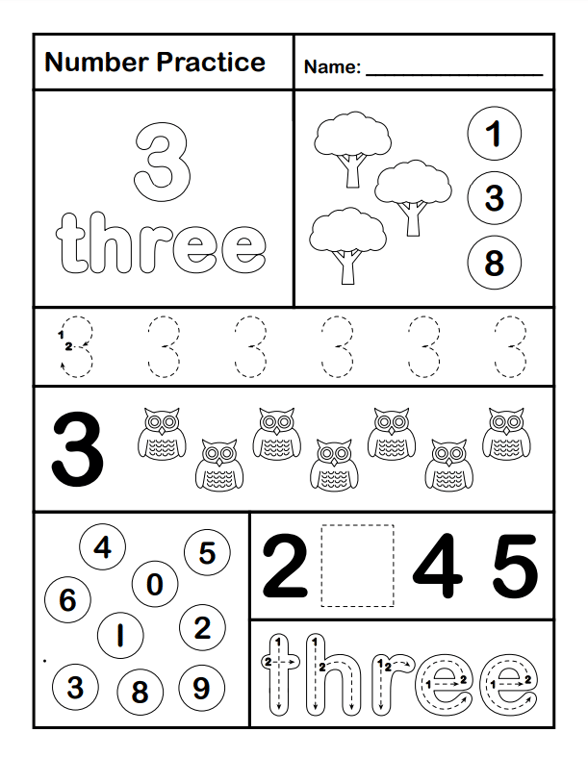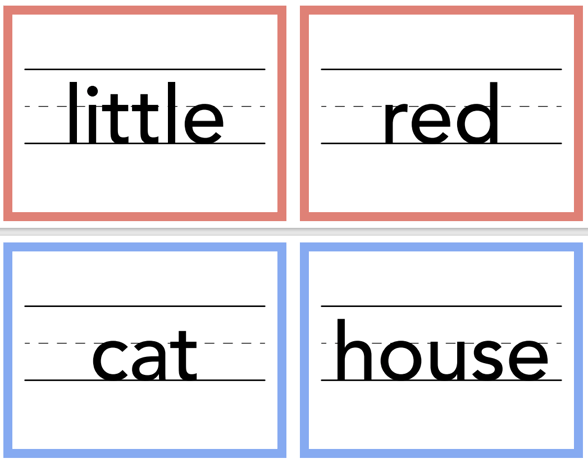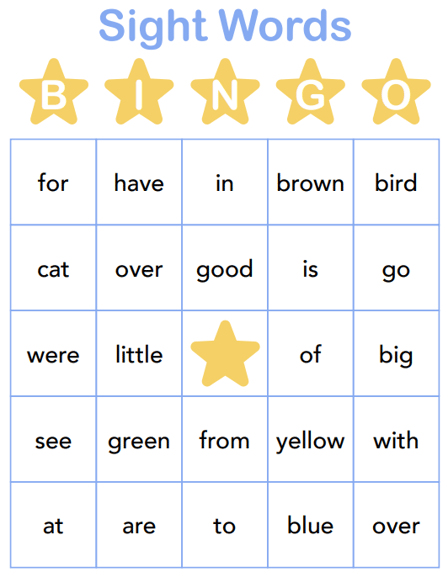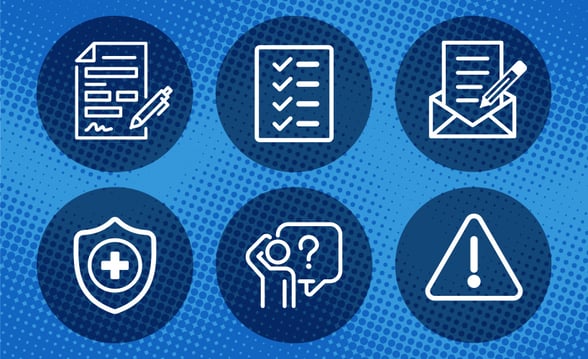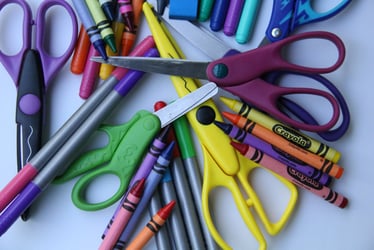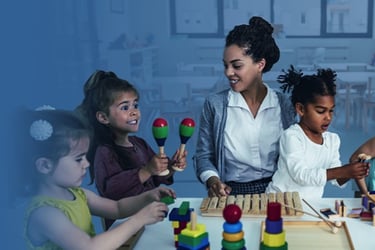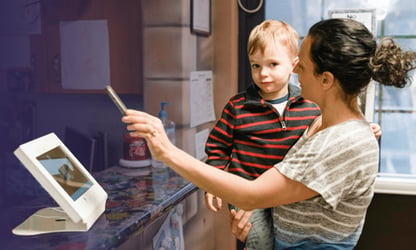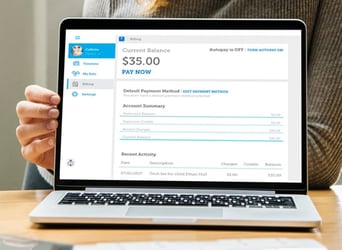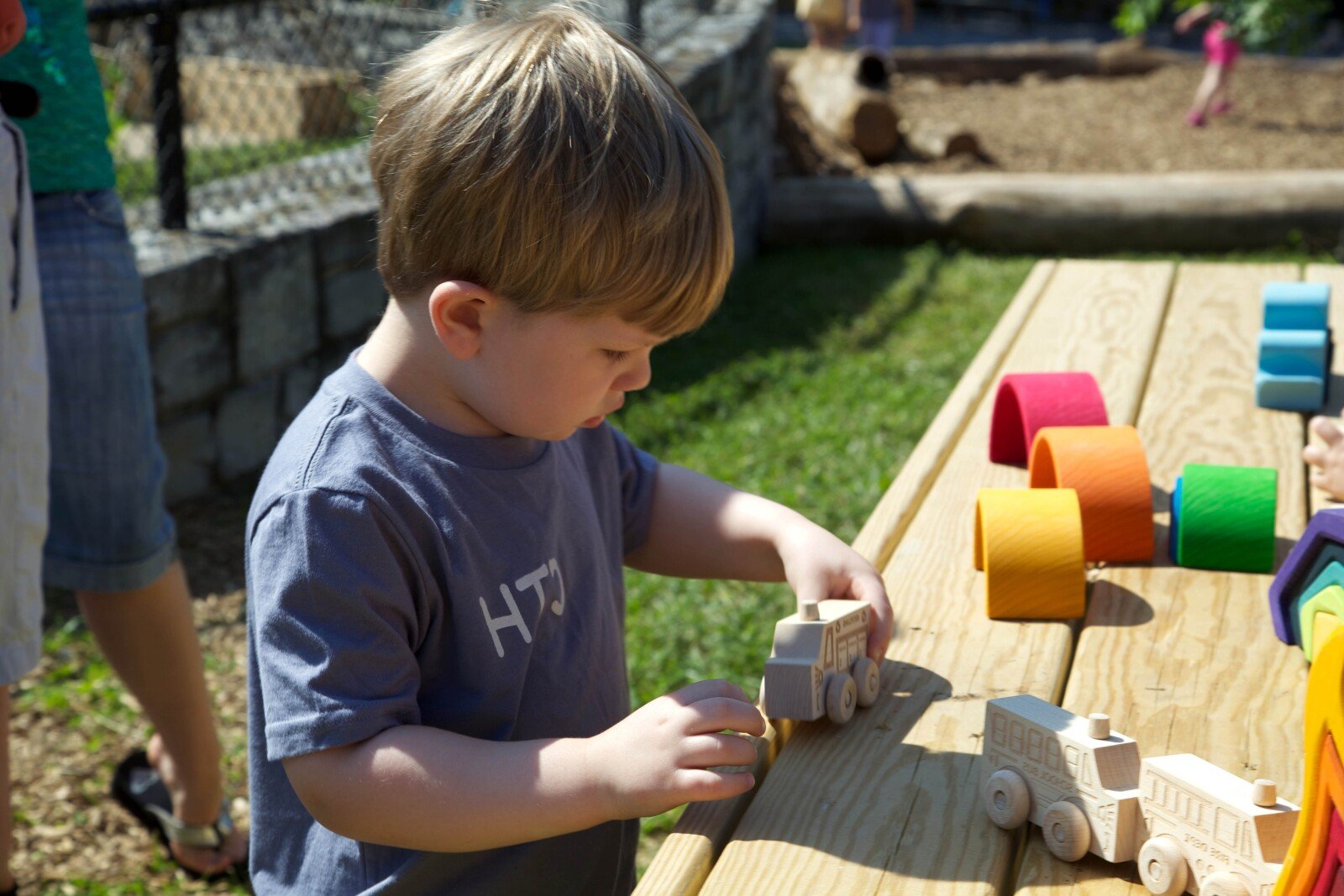
Dive into the enchanting world of preschool cognitive development, where each game and activity is a key to unlocking the vast potential of young minds. Beyond mere play, these 25 cognitive development activities help to encourage critical thinking skills, problem-solving and creative expression, laying the foundation for a future filled with innovation and curiosity. Join us on this transformative journey, where every challenge met and every question asked sparks the flame of lifelong learning for each toddler in your class.
Table of Contents
What Are the Best Cognitive Development Activities for Preschoolers?
- Matching Games for Cognitive Abilities
- Rhyming Activities for Cognitive Skills
- Problem-Solving Games for Preschoolers
- Board Games for Cognitive Function
- Structured Activities in the Preschool Setting
- Encouraging Critical Thinking through Scavenger Hunts
- Building Memory with Sequencing Activities
- Enhancing Spatial Awareness with Blocking
- Fostering Logical Thinking with Classification Games
- Cultivating Attention and Focus with Listening Games
- Encouraging Numeracy with Counting Activities
- Sight Word Activities
- What is a cognitive activity for preschool?
- Why are cognitive development activities so important for preschoolers?
- How do you promote cognitive development in a preschool setting?
- What kind of cognitive skills can preschoolers develop?
-
Get 70+ Editable and Printable Templates for Almost Every Preschool Situation
What Are the Best Cognitive Development Activities for Preschoolers?
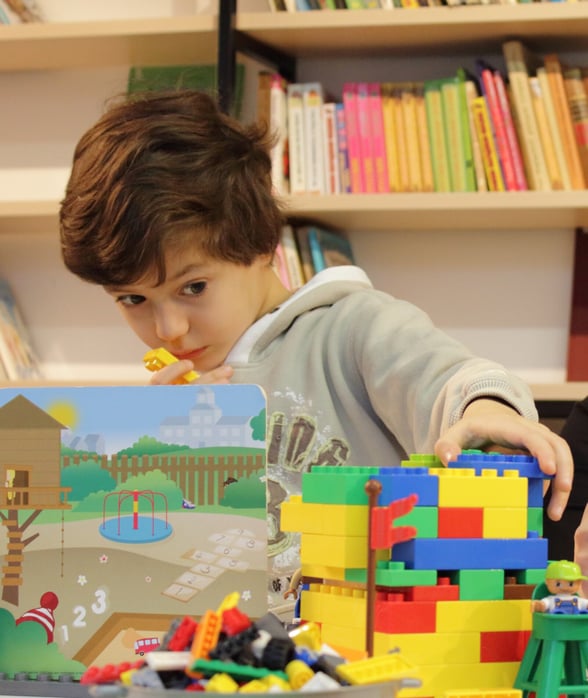
Matching Games for Cognitive Abilities
Matching games enhance visual recognition, memory and concentration skills in preschoolers. These activities require children to identify similarities and differences, improving their cognitive abilities.
1. Color Match
- Overview: Children match objects or cards based on colors
- Materials Needed: Colored cards or objects
- Setup: Spread out the colored cards or objects on a table or a designated area on the floor so every item is visible to the children.
- Instructions:
- Ask the children to pick one colored item and then find another item or card that matches its color.
- After they make a match, discuss the color, asking the child to name the color to reinforce color recognition and vocabulary.
- Repeat the process, allowing each child multiple turns to enhance their learning experience.
2. Shape Sorting
- Overview: A game where children sort items based on their shapes
- Materials Needed: Various objects or cards with different shapes
- Setup: Mix the shape items or cards and place them in a central pile accessible to all children.
- Instructions:
- Instruct the children to sort the items or cards into groups based on their shapes.
- As they sort, engage with each child or group, discussing the properties of each shape (like the number of sides or corners).
- Encourage the children to name each shape as they sort, reinforcing their shape recognition and language skills.
Rhyming Activities for Cognitive Skills
Rhyming activities strengthen language skills, phonemic awareness and auditory discrimination — all important cognitive skills. They help children predict and recognize sound patterns, a key aspect of literacy development.
3. Rhyme Matching
- Overview: Kids match words or pictures that rhyme
- Materials Needed: Cards with rhyming words or pictures
- Setup: Mix the rhyming cards and spread them out face up on a large table or on the floor so all images or words are visible to the children.
- Instructions:
- Invite the children to choose one card and then find another card that rhymes with it.
- Once they make a match, ask them to say the words out loud, emphasizing the rhyming sounds.
- Discuss each pair, reinforcing why the words rhyme and the phonetic similarities.
4. Rhyming Bingo
- Overview: A bingo game with a rhyming twist
- Materials Needed: Bingo cards with pictures, markers
- Setup:
- Distribute a bingo card to each child along with a set of markers or chips.
- Explain how each picture on their card will have at least one rhyming counterpart that you will call out.
- Instructions:
- Call out or show pictures that rhyme with the images on the bingo cards.
- Children place a marker on the image that rhymes with the word or picture you presented.
- The first child to complete a line shouts "Bingo!" Review the rhyming words in their line to reinforce the learning objective.
Problem-Solving Games for Preschoolers
Problem-solving games enhance critical thinking, reasoning and decision-making skills. They provide scenarios where children need to find solutions, boosting their cognitive development.
5. Puzzle Completion
- Overview: Children complete puzzles to improve problem-solving and spatial reasoning
- Materials Needed: Age-appropriate puzzles
- Setup: Scatter the puzzle pieces across a table, ensuring there's enough space for children to work without crowding.
- Instructions:
- Encourage children to select a puzzle and begin piecing it together.
- Observe and offer guidance as needed, asking questions to prompt them to think about where each piece might fit.
- After completing the puzzle, discuss the strategies they used and how they determined where each piece belonged.
6. Which One Doesn't Belong?
- Overview: A game that develops reasoning by identifying items that don't fit a set
- Materials Needed: Sets of objects or images, with one unrelated item in each set
- Setup: Arrange each set on a table or mat, making sure the unrelated item is not immediately obvious.
- Instructions:
- Present each set to the children, asking them to examine the items and decide which one doesn't belong.
- Encourage them to explain their reasoning, fostering language development and ability to think logically.
- Discuss the attributes that group the other items together and why the outlier is different, reinforcing critical thinking and categorization skills.
Board Games for Cognitive Function
Board games promote strategic thinking, turn-taking and rule-following. These games offer fun ways to develop cognitive skills and social skills in a structured setting.
7. Memory Game
- Overview: A classic game that enhances memory and concentration
- Materials Needed: Memory game cards
- Setup: Shuffle the memory cards and lay them face down in a grid formation.
- Instructions:
- Children take turns flipping two cards to find matching pairs.
- Encourage them to remember the locations of different cards to assist in making matches.
- Discuss strategies for remembering card positions to enhance memory and pattern recognition skills.
8. Simple Strategy Games
- Overview: Games like "Connect Four" or "Tic-Tac-Toe" encourage strategic thinking
- Materials Needed: Game boards and pieces
- Setup: Set up the game board according to the game rules.
- Instructions:
- Demonstrate how to play the game, highlighting how to plan moves and anticipate the opponent's strategy.
- Let children play the game, guiding them to think about the cause-and-effect of their decisions and the consequences.
- After the game, discuss what strategies worked and what they could do differently next time.
Structured Activities in the Preschool Setting
Structured activities provide a framework for cognitive development, focusing on specific skills within a guided context.
9. Daily Routine Role-Play
- Overview: Helps children understand and get comfortable with daily routines
- Materials Needed: Props related to daily classroom activities
- Setup: Create stations around the classroom that represent different parts of the daily routine, such as arrival, story time, snack time and departure.
- Instructions:
- Divide the children into small groups, assigning a station to each group.
- Guide them through the activities at each station, explaining the actions and their importance.
- Rotate the groups through the stations, allowing each preschooler to experience the different aspects of the routine.
- Conclude with a discussion on what they learned and how these routines contribute to their day.
10. Sorting and Categorizing
- Overview: Develops classification skills by grouping items based on attributes
- Materials Needed: Various objects or images
- Setup: Scatter the objects or lay out the images in a central location.
- Instructions:
- Encourage children to sort the items into groups based on a specific attribute (e.g., color, size, type).
- Facilitate discussions about the characteristics of each group and why certain items belong together, reinforcing logical thinking and categorization skills.
Encouraging Critical Thinking through Scavenger Hunts
Scavenger hunts stimulate cognitive processes like problem-solving, memory and deductive reasoning, as children follow clues to find objects.
11. Color Scavenger Hunt
- Overview: Children search for items based on color clues, enhancing color recognition and observational skills
- Materials Needed: Color clues and objects in various colors
- Setup: Prepare a list of colors or provide color cards to each child or team.
- Instructions:
- Children search the classroom or play area to find items that match each color on their list.
- As they find each item, encourage them to discuss why they chose it, reinforcing their understanding of colors.
- Review all found items together, discussing the colors and enhancing vocabulary and observational skills.
12. Shape Scavenger Hunt
- Overview: A fun way to reinforce shape recognition as children find items matching specific shapes
- Materials Needed: Shape clues and various objects
- Setup: Provide a list of shapes for children to find in their environment.
- Instructions:
- Kids search for and collect items that match the shapes on their list.
- Discuss the properties of each shape as children present their findings, reinforcing their shape recognition and cognitive association skills.
Building Memory with Sequencing Activities
Sequencing activities help preschoolers understand order and process, critical for developing logical thinking and memory skills in early childhood.
13. Story Sequencing
- Overview: Children arrange pictures or sentences to retell a story in the correct sequence
- Materials Needed: Story cards or pictures
- Setup: Scramble the sequence of story cards or pictures.
- Instructions:
- Present the mixed-up story cards to the children.
- Ask them to arrange the cards in order that they believe narrates the story correctly.
- Once they complete the sequence, narrate the story based on their arrangement, discussing the flow and logic to reinforce understanding.
14. Daily Routine Sequencing
- Overview: Enhances understanding of daily sequences and time management
- Materials Needed: Cards representing daily activities
- Setup: Mix up cards that depict various daily routine activities.
- Instructions:
- Show the mixed-up cards to the children, explaining each activity briefly.
- Ask them to arrange the cards in the order they think these activities occur throughout the day.
- Discuss each step as they place it, reinforcing the sequence and helping them understand daily routines.
Enhancing Spatial Awareness with Block Building
Developmentally appropriate block-building activities help to teach spatial reasoning, allowing children to understand and manipulate their physical world and enhance motor skills.
15. Block Building Challenges
- Overview: Encourages creative construction and spatial awareness
- Materials Needed: Different types and sizes of blocks
- Setup: Provide a variety of blocks.
- Instructions:
- Challenge the children to build a specific structure or replicate a design with the blocks.
- Allow them time to build, then discuss the structures, focusing on the use of space and the shapes created.
16. Navigating Obstacle Courses
- Overview: Develops spatial awareness and physical coordination
- Materials Needed: Objects to create an obstacle course
- Setup: Arrange objects to form a simple obstacle course.
- Instructions:
- Demonstrate how to navigate the course.
- Have the children take turns going through the course, observing their approaches and strategies.
- Discuss their experiences, focusing on how they perceived and interacted with the space.
Fostering Logical Thinking with Classification Games
Classification games enhance logical thinking, encouraging children to organize items based on common attributes.
17. Animal Habitat Sorting
- Overview: Kids classify animals based on their natural habitats, fostering matching skills, logical thinking and knowledge of the natural world
- Materials Needed: Animal and habitat pictures or figurines
- Setup: Display pictures or figurines of various animals and habitats.
- Instructions:
- Ask the children to place each animal in its corresponding habitat.
- Discuss the choices, focusing on the characteristics of each habitat and why certain animals live there.
18. Sorting by Size or Color
- Overview: Develops the ability to classify objects based on size or color
- Materials Needed: A collection of objects in different sizes or colors
- Setup: Present a mixed group of objects to the children.
- Instructions:
- Instruct the children to sort the objects by size or color.
- Engage in a discussion about their sorting criteria, reinforcing understanding of size, color and categorization.
Cultivating Attention and Focus with Listening Games
Listening games promote preschool cognitive development by enhancing auditory processing, concentration and the ability to follow directions.
19. Sound Identification
- Overview: Sharpens auditory skills and focus as children identify sounds
- Materials Needed: Various sound-making objects or recorded sounds
- Setup: Prepare a selection of distinct sounds, either from objects or recordings.
- Instructions:
- Play one sound at a time and ask children to identify the source or type of sound.
- Discuss each sound after identification, talking about its characteristics and where it might be heard in everyday life.
20. Musical Statues
- Overview: Combines listening with physical control, as children must freeze when the music stops
- Materials Needed: Music player and a selection of songs
- Setup: Clear an area for children to move around safely.
- Instructions:
- Play music and encourage children to dance or move around.
- Randomly pause the music; when it stops, children must freeze in place.
- Discuss the importance of listening for the music to stop and start, enhancing their attention to auditory cues.
Encouraging Numeracy with Counting Activities
Counting activities are a foundation for future education, where preschoolers develop numeracy and get a basic introduction to mathematics.
21. Count and Match
- Overview: Children count objects and match them with the correct numeral
- Materials Needed: Objects to count, number cards
- Setup:
- Arrange the small objects in groups from 1-10 on a table.
- Shuffle the number cards and place them in a stack face down.
- Instructions:
- Ask a child to pick a number card from the stack.
- The child counts out the corresponding number of objects from the groups.
- Once the objects are counted, the child matches the group with the number card.
- Repeat the process with each child, ensuring they get turns to practice counting and matching.
22. Snack Time Counting
- Overview: Integrates counting into a routine activity, making learning relevant and practical
- Materials Needed: Snack items, plates or napkins
- Setup:
- Distribute an equal number of snacks on plates or napkins for each child.
- Ensure each child has a clear view of their snacks and easy access to count them.
- Instructions:
- Instruct the children to count their snacks one by one.
- After counting, each child shares their total number with the group.
- Engage the children by asking who has the most or least if there's a variance in numbers.
- Introduce simple addition or subtraction by asking hypothetical questions (e.g., "If you eat two, how many will you have left?").
23. Math Worksheets
If you're looking for an activity to help children learn numbers, we built a pack of five math worksheets. Simply print them off, pass them out and provide a few simple instructions to teach children numbers one through five. Click the image below to download all five worksheets. If you're looking for more free materials, we have you covered with dozens of printables and templates. This is part of Vanco's mission to provide preschool classrooms with the free tools and management software they need.
Teaching Sight Words
Dolch sight words cover some of the most important words for little ones to learn. To help you, we built two sight word activity materials you can use. In the image below, you'll find the words that are most essential for preschoolers to learn. Each of the materials we built are designed to encourage mastery of these terms.
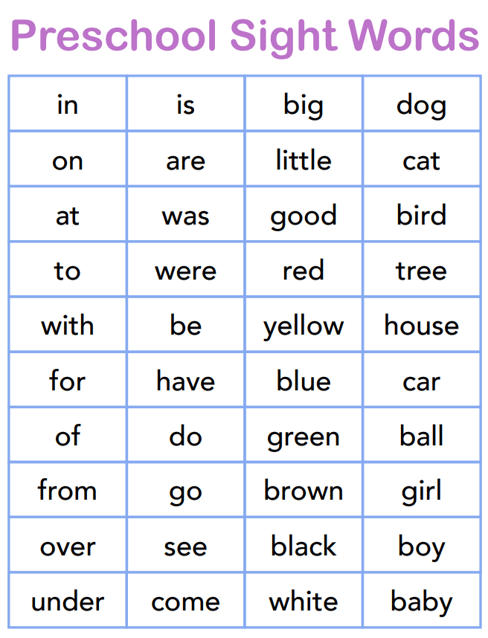
24. Sight Word Flash Cards
Flash cards are a great way to teach reading, especially for key terms. That's why we created these printout of sight word flashcards.
25. Sight Word Bingo Cards
Bingo is a fun game that many young learners are already familiar with. That's why we've created over a dozen printouts you can print off and use.
Key FAQs
What is a cognitive activity for preschool?
Cognitive activities for preschoolers are tasks and games designed to enhance children's mental processes. These activities are not just about learning facts or figures; they're about encouraging kids to think critically, solve problems and understand complex concepts relative to their age groups. Cognitive development of preschoolers can range from simple memory games to more complex problem-solving tasks, all aimed at stimulating brain development in the preschool years.
Why are cognitive childhood development activities so important for preschoolers?
Importance of Cognitive Activities
Engaging in cognitive development activities helps set the stage for a child's future learning. These activities help to fine-tune the preschooler's brain, making it more efficient and effective in processing information, solving problems and making decisions. By participating in these activities, children learn to focus, pay attention and remember details, which are essential cognitive skills in preschool and in their overall development.
Benefits for Preschoolers
- Enhances memory: Regular participation in cognitive activities helps improve preschoolers' memory, aiding them in retaining information more effectively.
- Boosts problem-solving skills: Cognitive activities challenge children to think critically and find solutions to problems, fostering their problem-solving skills.
- Promotes language development: Many cognitive activities involve following instructions or understanding stories, which can enhance language skills.
- Encourages creativity: These activities often allow children to use their imagination, promoting creative thinking.
How do you promote cognitive development in a preschool setting?
Tracking Progress on Cognitive Milestones for Preschoolers
Keeping track of cognitive milestones is essential to ensure preschoolers are developing as expected. Observing how children engage with cognitive activities can provide insights into their progress, helping educators and parents identify areas where they may need additional support or stimulation.
How to Help Children Develop Cognitive Skills
- Provide a variety of activities: Offer a range of cognitive development activities that target different areas of the brain and skills, such as fine motor skills, critical skills and problem solving.
- Create a stimulating environment: Ensure the learning environment is rich with materials and opportunities for exploration and discovery.
- Encourage curiosity: Answer questions, provide explanations and encourage preschoolers to ask more and explore their surroundings.
Boosting Cognitive Development
- Interactive play: Engage children in interactive play that requires them to think, make decisions and solve problems.
- Storytelling: Use storytelling to enhance imagination, memory and language skills.
- Questioning: Ask them questions, especially open-ended questions that prompt children to think and articulate their thoughts.
What kind of cognitive skills can preschoolers develop?
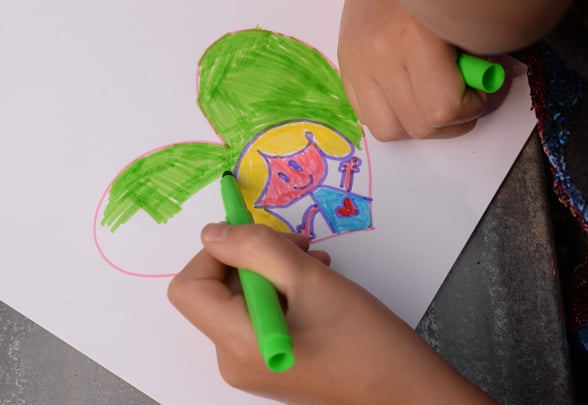
Building Cognitive Skills through Puzzles
Puzzles are an excellent tool for developing spatial awareness, problem-solving skills and patience. They require children to recognize patterns, shapes and colors, all of which are fundamental to a preschooler's cognitive development.
Developing Memory through Games
Memory games are not only fun but also incredibly beneficial for enhancing a child's memory and attention to detail. These games encourage preschoolers to remember positions, colors or shapes, which is a vital cognitive exercise.
Enhancing Language Skills with Cognitive Activities
Language-based cognitive activities can significantly boost a child's vocabulary, comprehension and communication skills. Through imaginative storytelling, rhyming games and conversation, kids learn new words, understand sentence structures and express their ideas more clearly.
Get 100+ Editable and Printable Templates for Almost Every Preschool Situation
We know preschools like yours are busy. That's why we made dozens of templates to help you manage the various aspects of your organization. With billing and invoicing, activity templates, forms and even marketing materials, we have it all. Download all 100 today!


